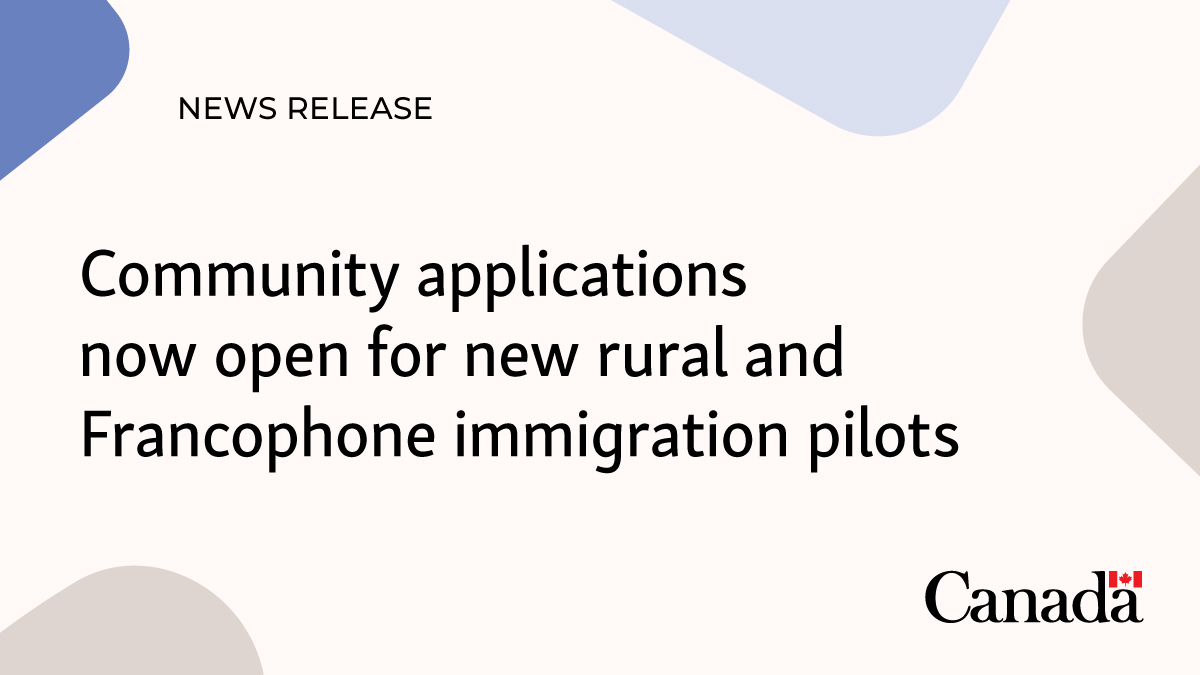🇨🇦 Canada Invites Communities to Apply for New Immigration Pilots Boosting Rural and Francophone Vitality

🗞️
The Government of Canada has launched the application process for two new immigration pilots aimed at attracting skilled workers to rural and Francophone minority communities. The Rural Community Immigration Pilot and the Francophone Community Immigration Pilot will allow up to 5,500 permanent resident applications per year, addressing economic and demographic challenges faced by these regions.
🗞️
Economic development organizations across Canada can apply on behalf of their communities, demonstrating their eligibility and outlining how immigration will strengthen local economies. Up to 15 communities will be selected based on economic needs, availability of newcomer support services, and the capacity of the organizations to partner with Immigration, Refugees and Citizenship Canada (IRCC).
🗞️
The pilots align with IRCC's Policy on Francophone Immigration and the government's commitment to bolstering regional immigration programs. By attracting French-speaking immigrants to Francophone minority communities outside Quebec, the pilots aim to enhance their demographic weight and economic development.
🗞️
Selected communities will undergo onboarding and training this fall, with IRCC announcing the participants in the coming months. These initiatives will contribute to Canada's long-term growth and linguistic vitality while addressing labor shortages in rural areas.
Curious for more? Click the link below to uncover additional details!
Community applications now open for new rural and Francophone immigration pilots
Rural and Francophone minority communities are key to both Canada’s long-term growth and our linguistic vitality. However, these communities face unique economic and demographic challenges. That is why the Government of Canada is launching two new pilots this fall to attract the skilled workers they need to grow their economies and communities.






Comments ()